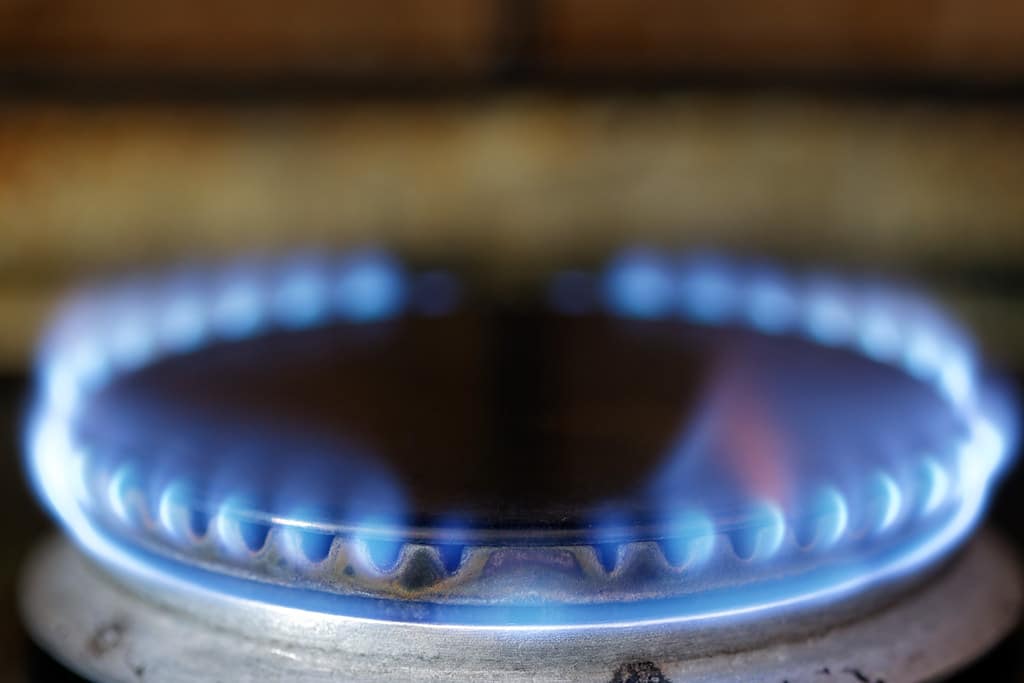The City of Eugene, Oregon, initiated a process on November 17 that could lead to a ban on new natural gas hookups in residential and commercial buildings, following in the footsteps of dozens of other cities around the country. The move would be the first in Oregon, and activists believe it could set off a domino-like trend in the state and more broadly across the Pacific Northwest.
The Eugene City Council approved a process in which they would consider a ban on new gas hookups in the coming months, with the ban tentatively planned to take effect in January 2023. Wednesday’s vote did not immediately approve the prohibition, but the apparent strong support from a majority of the City Council suggested that there is considerable momentum in that direction.
“Building electrification will get us cleaner air, healthier homes and support good jobs in our community. Requiring electrification, combined with funding to help low-to-moderate income residents and our business community to fuel switch, will create an equitable and feasible plan to decarbonize our buildings,” said Councilmember Jennifer Yeh. “And when we combine that with these ongoing energy efficiency improvements, it’s easy to see how all these things line up to support our triple bottom-line of environment, equity and economy.”
The move follows two years of negotiations with the natural gas utility, NW Natural, over various ways that the city could cut its greenhouse gas emissions in line with an ordinance that calls for a 50 percent reduction in emissions by 2030. The city wanted some reduction targets with teeth, requiring cuts to emissions from gas use, but NW Natural balked at binding requirements. Negotiations have dragged on since 2019 with little to show for it.
The breakdown led the City Council to chart a different course. “Here we are two years later and we still don’t have an agreement on anything. So, I’ve kind of run out of patience on that process. I don’t have confidence we are going to get anywhere soon. I think it’s time to pull out Plan B,” said City Councilor Alan Zelenka. “So, I can now support beginning our journey with respect to natural gas on two fronts: no new hookups for commercial and residential with limited exceptions; and working to reduce natural gas use in the existing load … and transitioning away from fossil fuel and toward electrification.”
The motion that passed on November 17 sets up future meetings at which a formal ordinance would be considered.
Ahead of the meeting, 25 environmental, public health, housing, and other community organizations sent a letter to the Mayor and City Council of Eugene, calling on the city to “abandon collaborative efforts” with NW Natural (NWN) over the city’s climate goals, and instead regulate the industry. “After two years of failed negotiations, it is clear that NWN is unwilling to work with the City to achieve meaningful emissions reductions,” the letter said.
Over the past year, NW Natural has engaged in a campaign of misinformation across Oregon in an effort to convince the public that it is a leader on emissions reductions, in an effort to keep regulation at bay. The utility has done this largely through promoting its buildup of “renewable natural gas” – gas obtained from landfills and agricultural feedlots – and speculative bets on hydrogen. While both renewable natural gas and hydrogen conceivably have applications in limited ways over the long-term, both technologies are riddled with problems including high costs, inadequate supply, and a panoply of technical obstacles. But NW Natural’s public advertising campaign in Oregon is aimed at misleading ratepayers and policymakers into thinking these technologies are already a large-scale reality, achieving emissions reductions today.
Activists argue that this PR campaign is not only aimed at heading off regulatory action, but also intended to maintain and potentially even allow for the expansion of gas pipeline infrastructure, keeping the region locked into natural gas. If the region increases its use of renewable natural gas or hydrogen, as NW Natural suggests it should, then the utility’s pipeline network becomes even more necessary.
NW Natural could not be reached for comment at the time of publication.
The action by Eugene to begin the process of shifting towards electrification goes in a different direction — away from fossil fuels and towards the hope of substantial emissions reductions. The city’s vote on Wednesday follows more than 50 other cities around the country, most of which are in California. The trend is starting to gain traction in the Pacific Northwest, with some limited restrictions passing this year in Seattle, Tacoma, and Multnomah County, where Portland is located.
“The council’s vote was a strong step forward on climate policy in the City of Eugene, and across the State,” Dylan Plummer, a senior campaign representative with the Sierra Club, said in a statement. “Today, a majority of council members made it clear that they will forge the path to cleaner and safer buildings in Oregon.”
Subscribe to our newsletter
Stay up to date with DeSmog news and alerts







